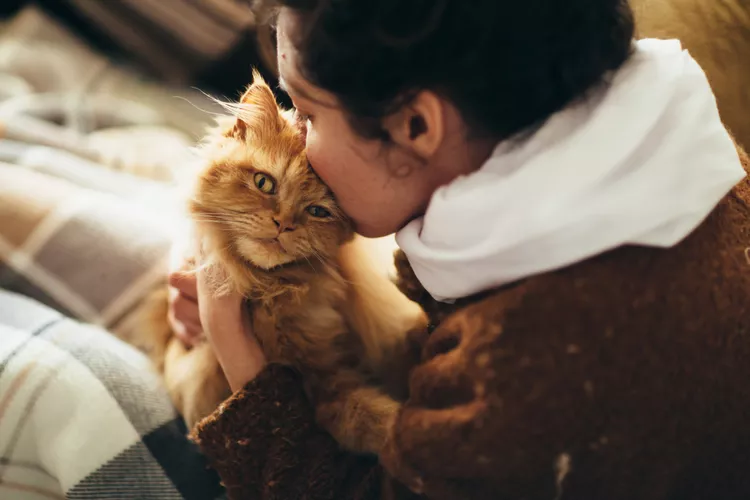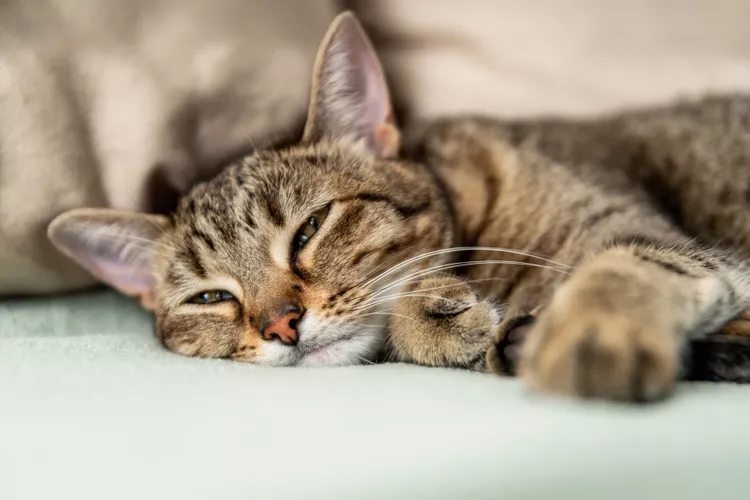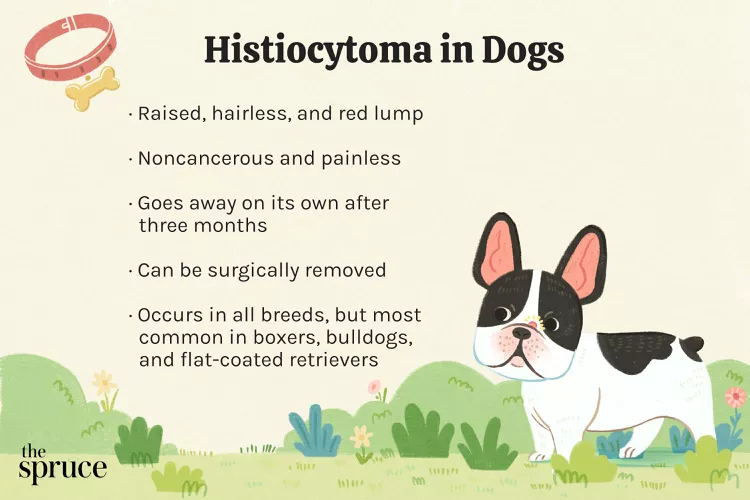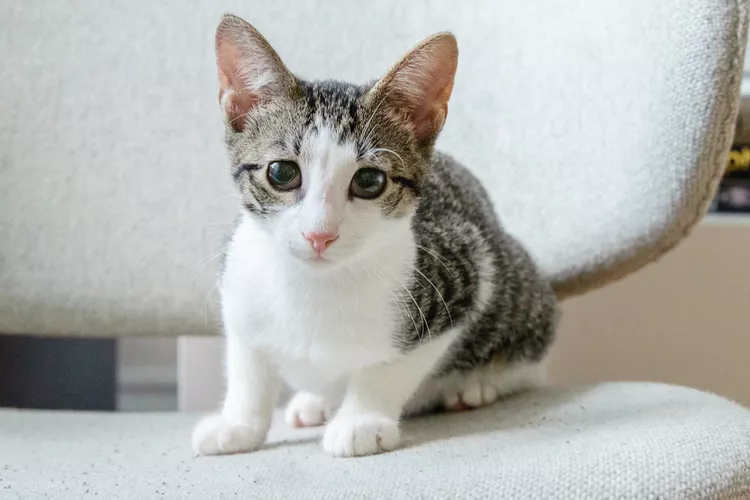
Historically, people often think every year of a cat's life is equivalent to seven years of a human's life, but cats actually age much faster than that. And with age, we know that diseases often follow.
On top of that, cats also act differently at certain life stages. Because of these things, it's not only helpful but also important to be able to understand what your cat is going through at each stage of its life.
Use the below chart as a guide to understand how your cat's age translates to human years.
The first six months of a kitten's life are filled with eye-opening experiences—literally. A kitten's eyes and ears open shortly after birth at around 1 to 2 weeks of age, and from there, its physical and mental development takes off. A kitten is exposed to sights, sounds, and smells just like that of a human infant. Each new animal, person, and object it comes in contact with helps to form its personality. Over the next few weeks, the socialization skills of a kitten are greatly affected depending on all of these interactions and exposures.
After a kitten leaves its mother at about 2 to 3 months of age, it will start to become more independent and curious. It will explore its surroundings, get into a little trouble, and potentially chew on things it shouldn't while its adult teeth are starting to erupt. Growth happens fast during these months and by the time a kitten is 6 months old, they are comparable to a 10-year-old child in age.
A series of vaccinations will need to be performed and kittens are typically spayed or neutered around 6 months of age. Most hereditary or congenital issues are usually discovered by your veterinarian during this time if there are any at all.
Since a 6-month-old kitten is already comparable to a double-digit human child, older kittens and younger adult cats will continue to test their boundaries as they grow into adults. By the time your cat is 1 year old, it will have reached its adult size, and its preferences, habits, etc. are typically established.
A 1-year-old cat is physiologically similar to a 15-year-old human, and a 2-year-old cat is like a 24-year-old person. Adult cats don't need as many vaccinations as a kitten needs and are usually healthy, but this age period is a good time to get some baseline blood work performed to know what your cat's normal values look like. You'll thank yourself when your cat is older and you have something to compare its blood work to. Occasional grooming, dental cleanings, and annual check-ups with a veterinarian are typically all that is necessary to keep a young adult cat healthy.
A 3 to 6-year-old cat is still an adult but not a senior cat yet. These years are usually trouble-free in regard to health concerns, but some cats do have chronic health issues or congenital concerns that need to be addressed.
A prime cat may benefit from early joint support supplements to keep its hips and knees working as they should, will need annual vet check-ups with regular vaccinations, and may experience an occasional health concern, but overall this age period is usually a healthy one.
A 5-year-old cat is comparable to a human in their mid-30s, so these are its prime years as an adult.
Once your cat reaches about 7 or 8 years of age, some veterinarians may start referring to it as a senior, but we know that since cats typically live into their late teens, they're not yet senior citizens. While cats who are 9 or 10 years of age might have been eligible for an AARP card if they were humans, they haven't quite reached retirement age yet.
This is an important age period to ensure your aging cat is getting proper nutrition because obesity is common in middle age. Also check that your cat hasn't developed dental disease, kidney issues, or a heart murmur, and is still able to jump on and off things easily. Blood work should be compared to that which was done during the younger years to ensure there are no trending changes in organ function and more frequent check-ups with your veterinarian are recommended.
Your cat is finally a true senior when it reaches 11 years of age. Joint issues are a commonly hidden concern that owners of aging cats should be addressing and organ functionality may start to decrease. Blood work should be monitored at the recommendation of your veterinarian to ensure common problems seen in senior cats are caught early. Dietary changes may also be recommended at this age since older cats typically need different nutrition as their bodies change.
Some older cats seem to get crabby as they age, but this is often simply because a senior cat may be experiencing pain, joint discomfort, or even brain changes and confusion. Be sure to discuss any observed changes with your veterinarian, as they may be an indicator of something else going on with your cat.
Cats live a long time. A 15-year-old cat is comparable in age to a human in their mid-70s, and by the time they are 20, they'd almost be 100 years old if they were a person. Any cat that is 15 or older is considered geriatric and should be visiting the veterinarian at least once every six months. These cats may be on medications or special foods and supplements to support various bodily systems. Geriatric cats often have decreased hearing and vision abilities and sleep for the majority of the day.
Cognitive decline is not uncommon in cats of this age, just like a human in their 90s might experience. Signs of cognitive dysfunction in cats include crying at night and urinating or defecating near, but not in, the litter box, among others.
While it's more common for a cat to live into its 20s than it is for a dog, a cat this old is still an accomplishment and special attention should definitely be paid to these geriatric felines.

Cute Pictures & Facts About Calico Cats & Kittens
Learn fascinating facts about calico cats, including photos, the genetics behind this color combination, and common folklore and traditions.
How to Prevent Cat Separation Anxiety During Vacations
Discover why cats develop litter box problems and cat behavior problems when you go on vacation and what you can do about it to help them.
Cat Behavior Changes That Might Mean Something's Wrong
Cats' behavioral changes may indicate problems—or they may mean nothing at all. Explore causes of odd behavior and what to do about them.
Lhasa Apso: Dog Breed Characteristics & Care
The Lhasa apso is an ancient breed from Tibet that was bred to be a watchdog. Learn about its history, health, exercise needs, and more.
Reasons Why Dogs Run Away and How to Stop It
Dogs can escape, especially if they’re bored and not properly contained. Here are some techniques for stopping your dog from running away.
Can Dogs Get Depression? How to Help Your Sad Dog
Can dogs get depression? Learn about the signs of depression in dogs and find out how to help your sad dog.
How to Stop Aggression in Dogs
Dog aggression can be a serious behavior issue for pet owners. Learn how to stop aggression in dogs before someone gets hurt.
How to Stop Your Dog From Growling
A growling dog can soon become even more aggressive. Reduce the noise and potential for a dangerous situation with some of these techniques.
Why Do Dogs Dig Holes? How to Stop Your Dog from Relandscaping Your Yard
Dogs have been digging holes for centuries and for many reasons. Whether they’re bored or want to cool off in the dirt, here are the top reasons why dogs dig holes.
Dog Treat Varieties
Learn about the different types of dog treats on the market and decide which are best for your dog.
Can Dogs Eat Asparagus?
Dogs can eat asparagus, provided the vegetable is cooked plain and cut up for them. Seasonings, salt, and butter make it unhealthy for dogs.
Histiocytomas in Dogs
A histiocytoma is a type of benign (non-cancerous) skin lump that usually affects young dogs. Learn the causes, treatment, and prevention.
Why Is My Dog’s Eye Swollen?
If your dog's eye is swollen, she may need veterinary attention. The inflammation could be caused by allergies, an injury, or even a tumor.
Common Bugs and Parasites Found on and Inside Dogs
Learn about common types of parasites in dogs. Find out how to treat and prevent parasites to keep your dog, your family, and yourself safe.
Exploring the Different Types of Pet-Friendly Beaches
Are you looking for pet-friendly beaches? Learn about the different types of pet-friendly beaches, their locations, and tips for visiting them with your pet.
10 Obscure, Little-known Canine Facts in Honor of National Dog Day
With National Dog Day upon us, it's time to celebrate everything about our favorite pets—even the weirder stuff. Here are 10 obscure facts about dogs you probably didn't know.
Kitten Development From 3 to 6 Months Old
Kittens grow and change a lot during their first year. Find out what happens between the ages of three months and six months old.
95 Siamese Cat Names
Our list of Siamese cat names has diverse and fun options to help you choose the ideal moniker for your elegant and lovable feline companion.
What to Buy for Your New Cat: A List of Essentials
Before you bring your new cat or kitten home, there are a number of things to collect or buy so your cat will feel welcomed like a family member.
The 6 Best Cat Nail Clippers of 2024 for a Safe Trim
Clipping your cat's nails can save your furniture and keep your kitty comfortable. We asked veterinarians for their cat nail clipper recommendations.